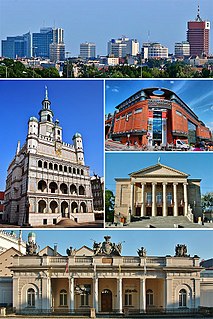
Gniezno is a city in central-western Poland, about 50 kilometres east of Poznań, with 68,943 inhabitants making it the sixth-largest city in the Greater Poland Voivodeship. One of the Piast dynasty's chief cities, it was mentioned in 10th-century sources, possibly including the Dagome Iudex, as the capital of Piast Poland. The Roman Catholic archbishop of Gniezno is the primate of Poland, making it the country's ecclesiastical capital. It has belonged since 1999 to the Greater Poland Voivodeship, and is the administrative seat of Gniezno County (powiat).
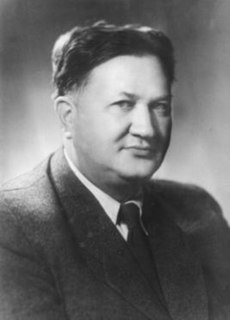
Zygmunt Wojciechowski was a Polish historian and nationalist politician. Born in 1900 in then-Austria, he obtained a doctorate from medieval history at Lviv University. In 1925 he moved to Poznań, where he became a full professor in 1929. In 1934-1939 he became politically involved with the nationalist party Endecja. During occupation of Poland by Nazi Germany he worked in Polish underground opposing German genocide of Poles by providing underground teaching, which was banned by German state and worked on future concept of Polish borders that would provide Poland with safety against any further German aggression. He supported an alliance with Soviet Union and after the war he continued to work as historian in People's Republic of Poland and headed Western Institute that studied former Polish territories recovered from Germany and history of Polish-German relations. He was a recipient of Commander's Cross and Officer's Cross of Order of Polonia Restituta.
Andrzej Sakson is a Polish sociologist and historian. Since 2004 he has been the director of the Western Institute in Poznań.
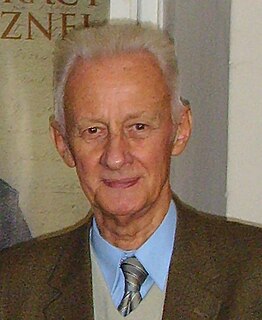
Lech Trzeciakowski was a Polish historian who served as director of the Western Institute in Poznań from 1974 to 1978. Born in Poznań, he also died there in 2017.
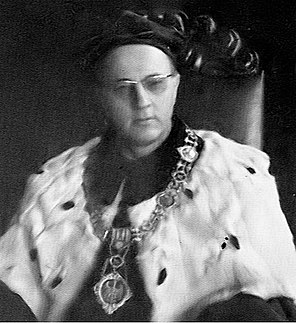
Gerard Labuda was a Polish historian whose main fields of interest were the Middle Ages and the Western Slavs. He was born in Kashubia. He lived and died in Poznań, Poland.
Kazimierz Piwarski was a Polish historian, professor of Jagiellonian University in Kraków since 1946 and Poznań University in years 1953-1955, member of Polish Academy of Skills since 1945, and member of Polish Academy of Sciences since 1958.
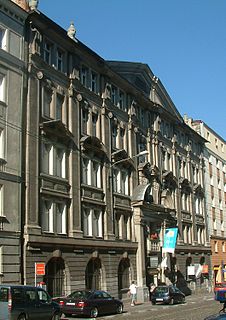
The Poznań Society of Friends of Learning is a learned society in Poznań, Poland, established in 1857, of scholars and scientists in all branches of learning. It has been one of the largest and most important general learned organizations in Poland.
Witold Jakóbczyk was a Polish historian and professor at Poznań University, specializing in the history of Greater Poland in the 19th century.
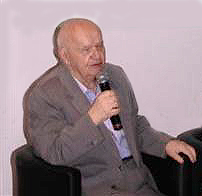
Janusz Tazbir was a Polish historian, specializing in the culture and religion of Poland in the 16th and 17th centuries.
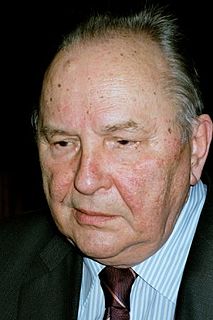
Jerzy Ryszard Szacki was a Polish sociologist and historian of ideas. Since 1973, he worked as professor at the University of Warsaw and in 1991 he became member of the Polish Academy of Sciences. He is regarded as one of the most prominent representatives of the Warsaw School of the History of Ideas.
Antonina Kłoskowska, was a Polish sociologist. In her work, she focused on the sociology of culture. Kłoskowska taught at the universities Łódź (1966-1977) and Warsaw (1977-1990). She was a member of the Polish Academy of Sciences (PAN) since 1973 and worked in its Institute for Political Studies since 1990. Since 1983, she edited the journal Kultura i Społeczeństwo. From 1989 until 1993, she was the president of the Polish Sociological Association. With Władysław Markiewicz and others, Kłoskowska co-edited a multi-volume Polish complete edition of Bronisław Malinowski's works which appeared 1984-1990.

Sociology in Poland has been developing, as has sociology throughout Europe, since the mid-19th century. Polish sociology is today a vibrant science, with its own experts and currents of thought. As early as in 1917 a Polish scholar, Jan Stanisław Bystroń, wrote that Polish sociology is — as any other national sociology — a notable and separate field.
Stanisław Kozierowski was a Polish Catholic priest and historian.
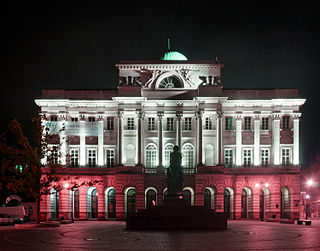
Institute of Economics, Polish Academy of Sciences is a public Polish research center for economic and business studies. It was founded on December 10, 1980. Its offices are located in the Staszic Palace and the Palace of Culture and Science in Warsaw. Organizationally, it is part of the Polish Academy of Sciences. The Institute of Economics has the rights to bestow doctoral degrees, habilitation degrees and to initiate the professorship procedure. Some of its MBA and DBA prominent programs are the most modern programs in Poland which are internationally recognized.
Seweryn Chajtman – a Polish scientist, engineer, teacher of organization and management in the industry, pioneered Computer Science in Poland. Creator of the Alternative Theory of Organization and Management.
The Studia Socjologiczne is a quarterly peer-reviewed academic journal co-published by the Polish Academy of Sciences and the University of Warsaw. It covers various areas of sociology. The journal publishes articles in Polish and since 2012, English.

Piotr Tadeusz Gliński is a Polish sociologist, professor, university lecturer and politician. He served as President of the Polish Sociological Association from 2005 to 2011. He was the nominee of Law and Justice, the largest opposition party, for Prime Minister of Poland. In the cabinet of Beata Szydło, he serves as the First Deputy Prime Minister and the Minister of Culture and National Heritage in the Law and Justice government.
Barbara Bojarska is a Polish historian, prize-winning author, and former long-term research scientist at the Western Institute in Poznań, where she received her doctorate for the work about Massacres in Piaśnica. Her books are devoted almost entirely to history of Pomerania with special focus on the World War II atrocities committed against ethnic Poles by Nazi Germany during Operation Tannenberg.
